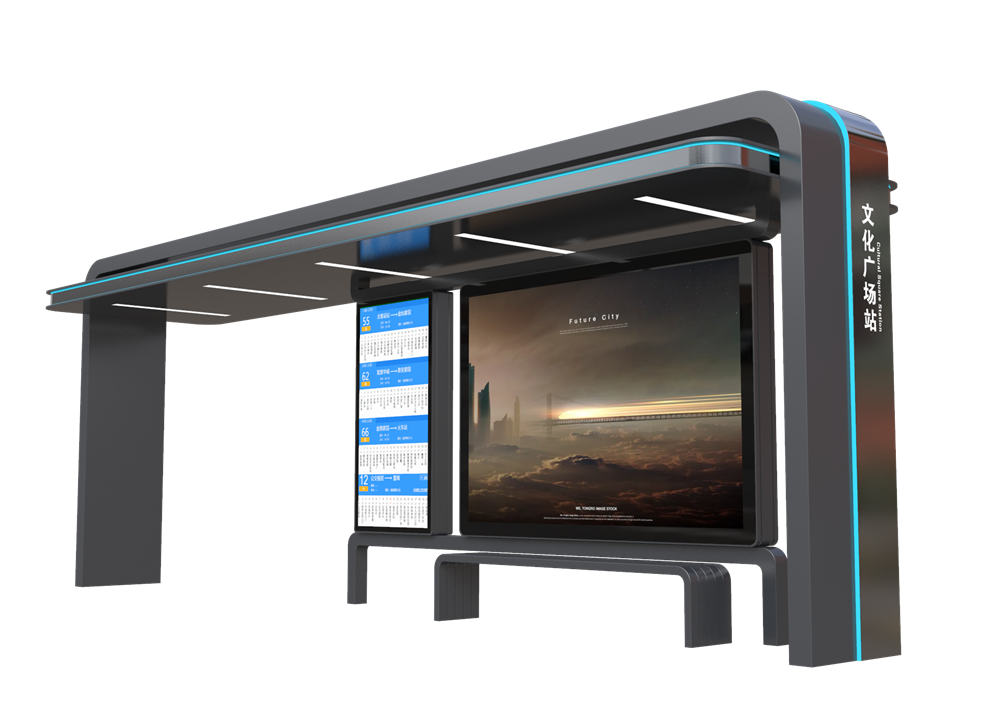With the acceleration of urbanization, urban transportation problems are becoming increasingly prominent. As an important component of urban public transportation, the construction of bus stops is not only related to the image of the city but also to the travel experience of residents and the sustainable development of the city. In recent years, the construction of smart city bus stops has become a hot topic in urban construction. It is supported by technology and aims to improve residents' travel experience, providing new solutions for the smooth operation of urban transportation.
At present, there are a series of problems in the construction of bus stops in many cities, such as poor waiting environments, opaque information, and a lack of security guarantees. These issues not only affect the travel experience of residents but may also lead to traffic accidents and criminal incidents. The construction of smart city bus stops has emerged to address these issues.
The construction of smart city bus stops is supported by information technology, and through the application of intelligent devices, functions such as bus arrival prediction, real-time bus information query, and bus route planning have been achieved. These functions provide residents with more convenient and efficient modes of travel, greatly improving their travel experience. At the same time, the construction of smart city bus stops can also achieve safety monitoring of bus stops through monitoring equipment, improving the safety of bus stops.

Compared to traditional bus stops, the advantages of smart city bus stop construction are obvious. On the one hand, it achieves functions such as bus arrival prediction and real-time bus information query through the application of information technology, providing residents with more convenient and efficient travel methods. On the other hand, the construction of smart city bus stops can also achieve safety monitoring of bus stops through monitoring equipment, improving the safety of bus stops. In addition, the construction of smart city bus stops can also achieve intelligent functions such as energy management and environmental monitoring, making contributions to the sustainable development of the city.
The construction of smart city bus stops is a long-term and complex system engineering that requires the joint participation and support of the government, enterprises, and various sectors of society. The government should increase investment in the construction of bus stops, introduce relevant policies and standards, and promote the process of smart city bus stop construction; Enterprises should leverage their technological advantages and actively participate in the construction of smart city bus stops; All sectors of society should pay attention to and support the construction of smart city bus stops through various channels, jointly improving the quality of the city and improving the travel experience of residents.
The construction of smart city bus stops is an inevitable choice for sustainable urban development. Through the application of information technology and intelligent devices, the construction of smart city bus stops provides residents with more convenient and efficient modes of travel, improving their travel experience. At the same time, the construction of smart city bus stops also helps to improve the level of urban governance and promote sustainable development of the city. Let's work together to promote the construction of smart city bus stops and contribute to the prosperity and development of the city!








 Share to:
Share to: